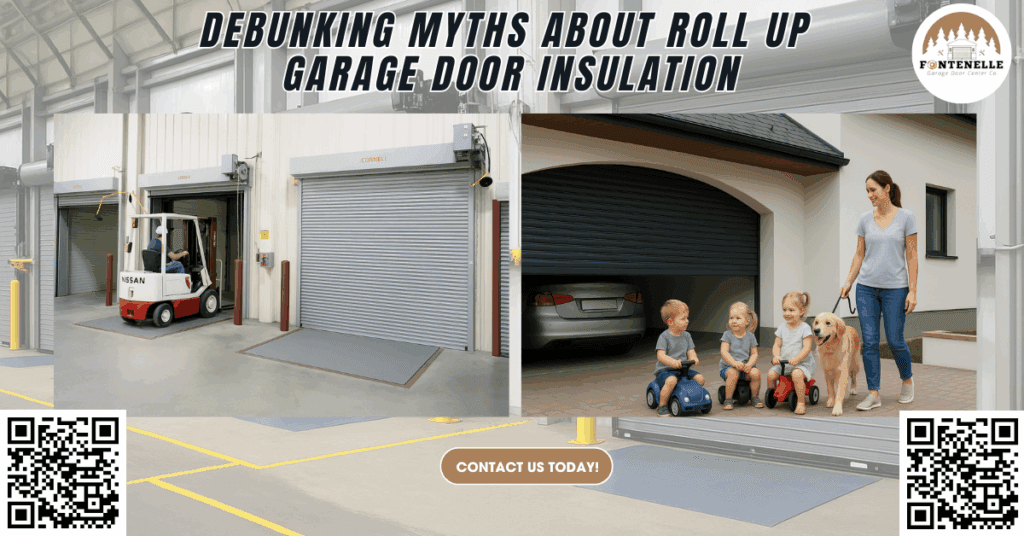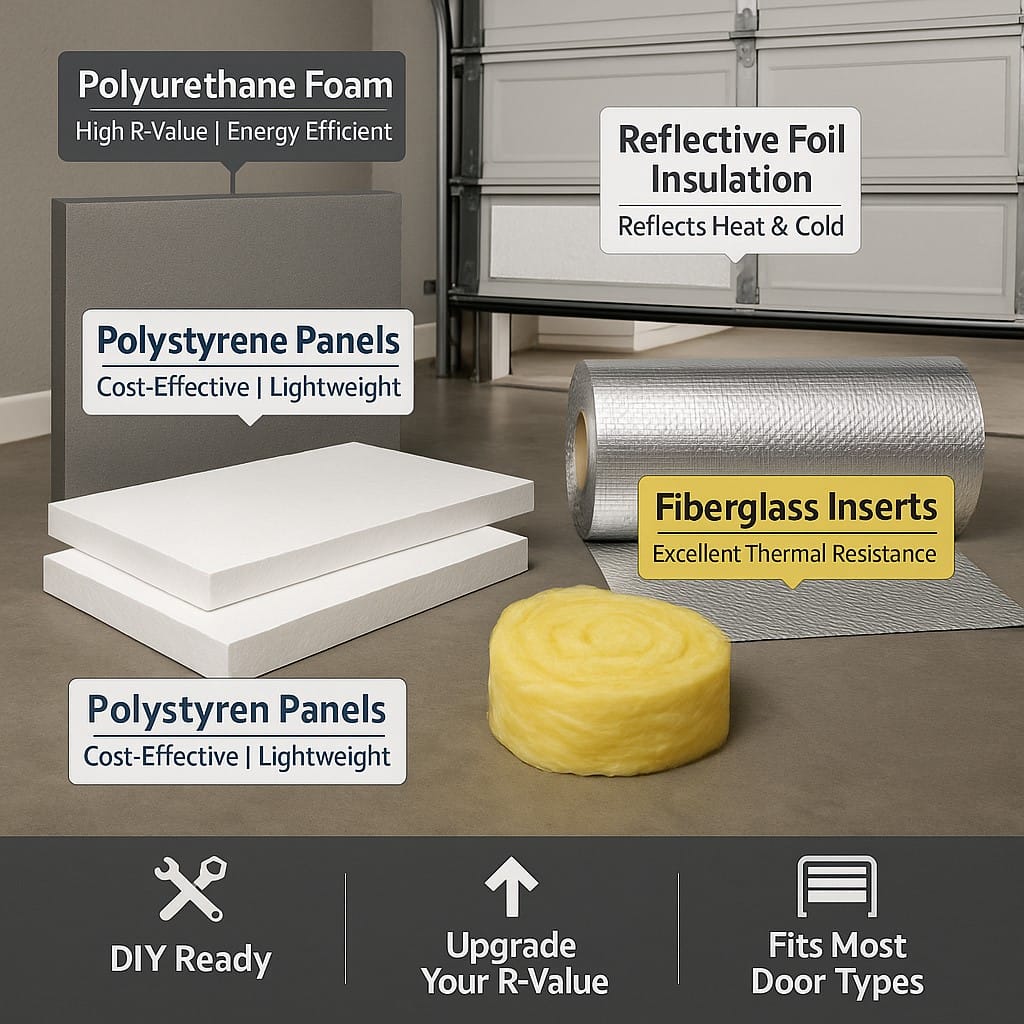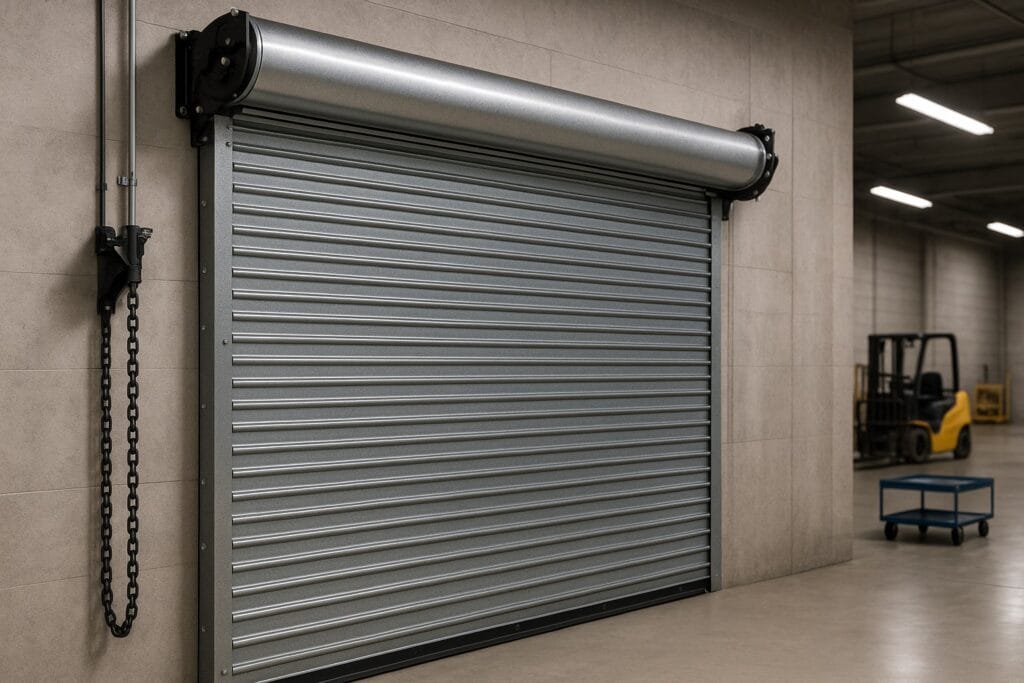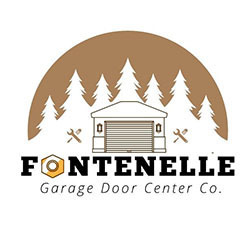Debunking Myths About Roll-Up Garage Door Insulation

Did you know that up to 35% of a home’s energy loss can happen through non-insulated garage doors? One Bellevue family contacted us mid-winter because their laundry room, right above the garage, was freezing. Their uninsulated roll-up garage door was the main culprit. We upgraded it with high-quality foam insulation panels, and within days, the garage temperature stabilized, reducing their heating bill by nearly 20%.
At Fontenelle Garage Door Center Co., we frequently get questions about whether insulating a roll-up garage door is even worth it. Homeowners and business owners in Bellevue, NE, and nearby areas often believe myths that prevent them from improving their energy efficiency and home comfort. We’re here to set the record straight.
This article dives deep into the most common myths about roll-up garage door insulation and shows you why insulating your garage doors is one of the smartest home investments you can make.
What Is Roll-Up Garage Door Insulation?
Roll-up garage doors, especially popular in commercial properties and tight residential garages, roll into a coil above the opening. While many think these are hard to insulate, that’s far from the truth.
Modern garage door insulation kits use:
- Polyurethane foam (high-density, energy-efficient)
- Polystyrene panels (cost-effective and lightweight)
- Reflective foil barriers (heat and cold reflectors)
- Fiberglass inserts (excellent thermal transfer resistance)

These insulation materials add an effective thermal layer that improves energy savings, maintains interior garage temperature, and reduces noise.
Myth #1: “Insulation Doesn’t Work for Roll-Up Garage Doors”
False.
Insulating your roll-up garage door makes a big difference. In Nebraska’s climate, where hot summers and cold winters are common, insulation reduces heat transfer and prevents garage heat loss or gain. This protects items stored in your garage space and helps maintain temperature in attached rooms, cutting down on energy bills.
Think of it like this: Would you leave your front door wide open during winter? An uninsulated garage door is just as bad.
Myth #2: “It Makes the Door Too Heavy”
Not true.
Most modern garage doors, especially from brands like Clopay, Amarr, or Martin Garage Doors, are designed to accommodate added insulation weight. If installed professionally, insulation won’t affect how your garage door opener works or how easily the door operates.
At Fontenelle, we adjust the tension springs and check the logic board and motor strength to ensure the door operates smoothly.
Myth #3: “You Can’t Insulate It After Installation”
Absolutely wrong.
With today’s technology, garage door insulation kits make it easy to upgrade existing doors. We use materials like:
- Rigid foam
- Batt insulation
- Foil-faced panels
These are ideal for retrofitting older doors. No need to buy a new garage door. Whether you have a steel, aluminum, or sectional door, we’ll find the right fit.
Myth #4: “Only Homeowners Need Insulated Doors”
Businesses benefit too.
In commercial garages, warehouses, and service centers, an insulated garage door helps regulate the indoor temperature and protects valuable equipment. It improves energy efficiency and provides noise reduction, which is a plus in busy workspaces.

We’ve helped auto shops and storage units around Bellevue save hundreds of dollars monthly in energy savings after installing insulated commercial roll-up doors.
Myth #5: “Insulation Will Ruin the Look of My Door”
Not with professional installation.
Today’s insulation materials are thin, neat, and clean. Whether you own a Craftsman garage door or a Chamberlain model, our installations maintain or even enhance the door’s appearance. You’ll get style and performance in one package.
Myth #6: “Insulated Garage Doors Are Too Expensive”
They actually offer the best return on investment.
Sure, the initial cost is higher than a basic door, but the benefits include:
- Lower utility bills
- Reduced maintenance
- Longer door lifespan
- Improved comfort
Plus, your home’s resale value improves with an insulated garage door, making it an excellent long-term investment.
Myth #7: “Anyone Can DIY Garage Door Insulation”
DIY kits may seem easy, but they come with risks.
We’ve seen countless garage doors damaged by poorly installed kits using Styrofoam, tape, or glue. An improperly insulated door can cause strain on your garage door opener, affect U-value and R-value, and even void your warranty.
Hiring a pro ensures:
- Correct R-value per door type
- No thermal bridging or gaps
- Balanced operation
- Long-lasting results
Benefits of Roll-Up Garage Door Insulation
Insulating your roll-up garage door leads to:
✅ Energy Efficiency – Better temperature control in summer & winter
✅ Noise Reduction – Quieter operation and less outside noise
✅ Durability – Strengthens the door’s structure
✅ Protection – Shields cars and tools from extreme heat/cold
✅ Lower Energy Bills – Reduced HVAC strain
✅ Wide Range of Options – Polyurethane, polystyrene, fiberglass, and more
Whether you’re using your garage as a workshop, storage, or just parking your car, insulation makes the space more usable year-round.
How Can Fontenelle Garage Door Center Co. Help You?
At Fontenelle Garage Door Center Co., we’re more than just garage door experts, we’re your local insulation specialists in Bellevue, NE. Whether you want to insulate your existing garage door or upgrade to a new insulated garage door, we’ve got you covered.
📍 Visit us at: Fort Crook Rd N, Bellevue, NE, 68005
📞 Call us now: (402) 674-4281
We offer:
- Free insulation consultations
- Top-quality materials with superior R-values
- Precision installation for roll-up, sectional, or custom doors
- Residential & commercial solutions
Let us help you save energy, improve comfort, and protect your garage all year round. Reach out today to schedule your garage door insulation upgrade with the trusted team at Fontenelle Garage Door Center Co.!
Frequently Asked Questions (FAQs)
1. Can insulating a roll-up garage door help reduce street noise?
Yes, adding insulation creates a sound barrier that significantly reduces noise from traffic, neighbors, or nearby construction.
2. Does garage door insulation prevent condensation or moisture buildup?
Insulation helps regulate temperature, which can reduce condensation, but proper ventilation is also key to fully preventing moisture issues.
3. How long does garage door insulation last?
Most high-quality insulation materials like polyurethane and polystyrene can last 15–20 years or more with proper care.
4. Will insulating my garage door affect my garage door opener’s warranty?
No, as long as the insulation is professionally installed and doesn’t exceed the door or opener’s weight limit, it won’t void your warranty.
